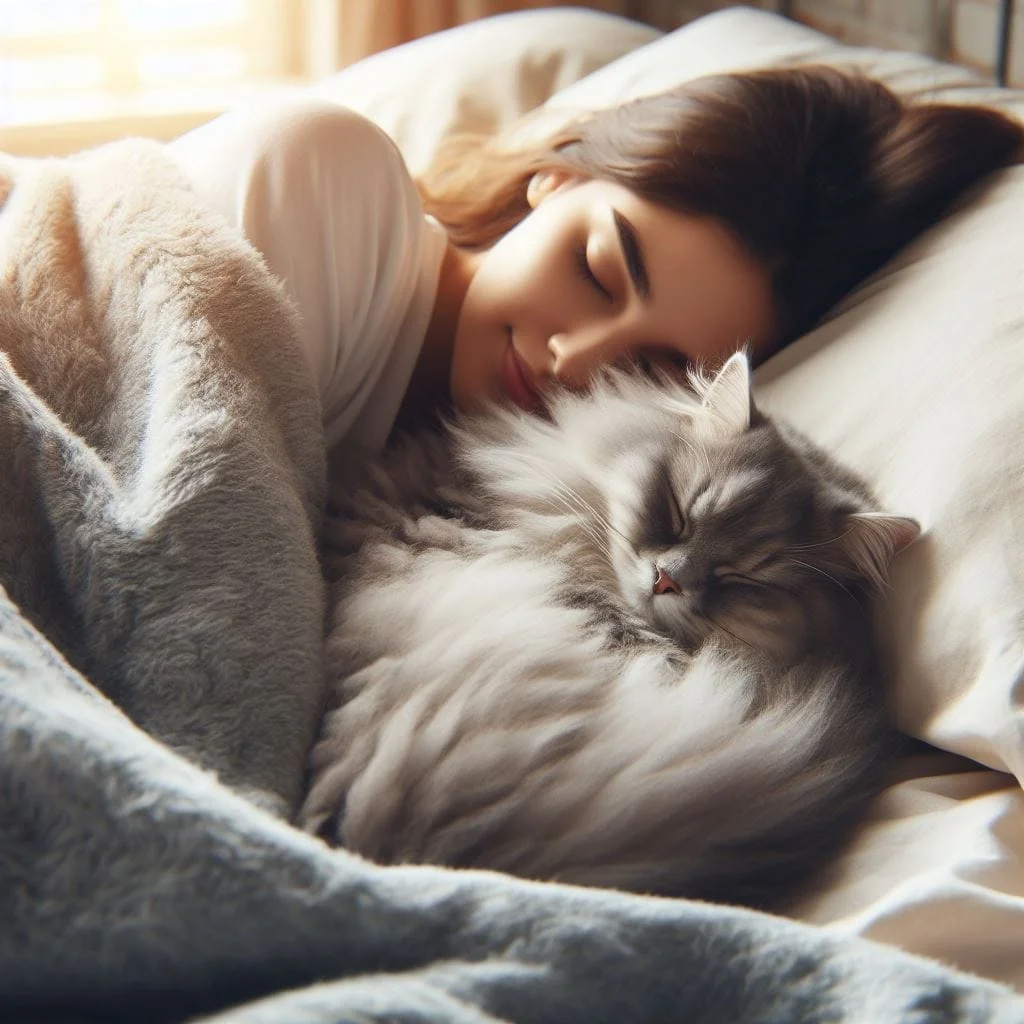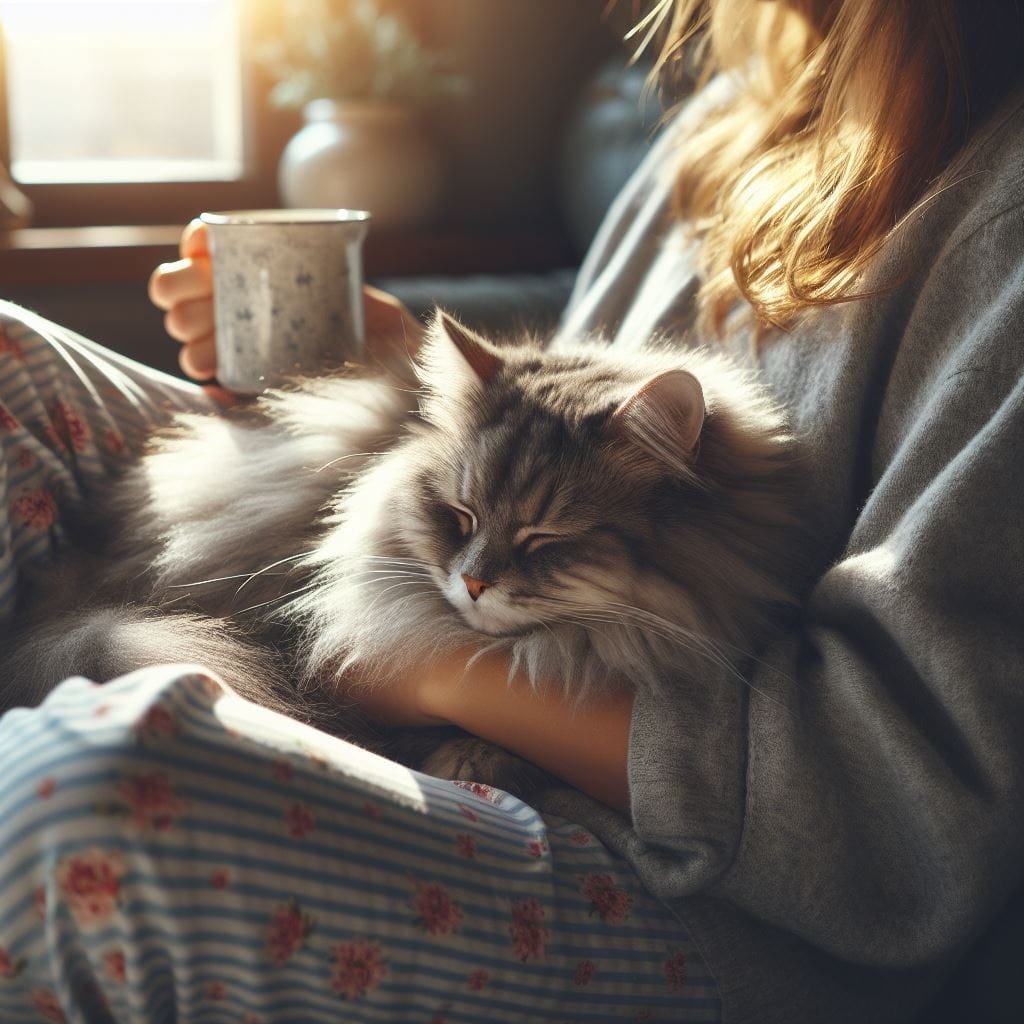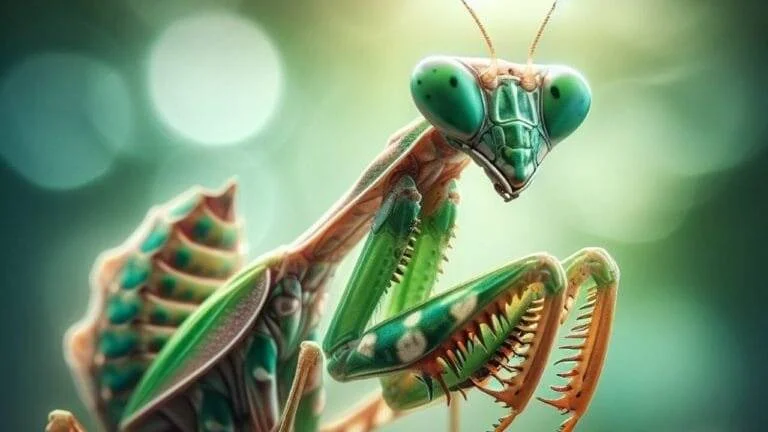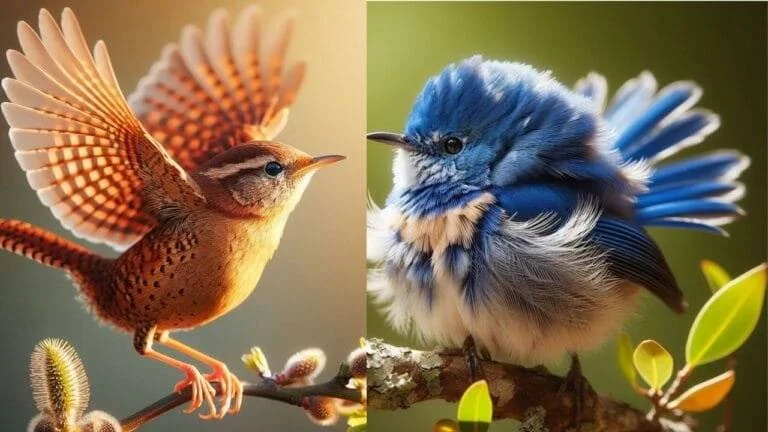Why Does My Cat Sleep on Me?

Cats have a deep-rooted need for safety and security, and this is reflected in their sleeping habits. In a study observing the resting patterns of cats in multi-pet households, researchers found that the more confident and dominant cats often chose the most open and vulnerable spots to rest, while the less secure felines preferred hidden and protected areas. However, when the owners were present, even the more timid cats felt comfortable resting in more exposed locations, highlighting the sense of safety and assurance they derive from their human companions.
Cats have a unique third eyelid called the nictitating membrane, which can partially close while they’re resting, allowing them to remain alert even in their sleep. This is a clear indication of how deeply ingrained the need for safety is for these feline companions. When your cat chooses to sleep with you, it signals a profound level of trust and the knowledge that they are safe and protected in your presence.
The Warmth Connection
Cats are natural heat-seekers, and your body provides a cozy, warm spot for them to curl up and nap. As you sleep, your body temperature rises, making you an irresistible sleeping spot for your feline friend. They may even choose to sleep near your head, as that’s the warmest part of your body.

The Significance of Sleeping Positions
The specific spot your cat chooses to sleep on your bed can reveal a lot about the nature of your bond and their level of trust in you. Here are some insights into the different sleeping positions:
At Your Feet
If your cat sleeps at your feet, it is a mix of independence and connection. They can easily hop off the bed if they need to, but they still want the comfort of knowing you are there. This position may be preferred by cats that are new to a home or a little more shy, as they slowly warm up to the idea of closer contact.
Near Your Head
This is a particularly intimate spot, as your cat can be close to your face, hear your breathing, and feel the rise and fall of your chest. If your cat chooses to sleep near your head, it is a strong indication of their fondness for you and the deep level of trust they have in your presence.
On Your Legs
When a cat lays on your legs, they are essentially pinning themselves between your legs and the bed. This position requires them to feel secure, as they are in a vulnerable spot. They are also able to soak in the warmth generated by your larger muscle groups.
On Your Chest
If your cat sleeps on your chest, it is as close and personal as they can get. They can hear your heartbeat, feel your breathing, and are literally right under your nose. This position is a testament to the deep trust and bond they have with you. Researchers have observed that cats in shelters who were more prone to sleeping close to volunteers, especially near the chest area, were often quicker to adapt to new homes when adopted, indicating a strong sign of trust and adaptability.
Is It Safe to Sleep with Your Cat?
In most cases, the answer is yes. The act of a cat purring can actually reduce stress and lower anxiety, and the gentle rhythmic sound of purring is known to be medically therapeutic, promoting healing in bones and tissues. However, there are a few things to consider:
- Cats have different sleeping patterns than humans, being more active during dawn and dusk. If you are a light sleeper or someone who can’t handle interruptions, having a cat in your bed might not be ideal.
- If you have allergies to cats, it’s best to keep them out of your sleeping area to ensure a good night’s rest for both you and your feline friend.
- Some studies have reported minor disruptions, such as the cat moving around, hogging the bed, or even snoring. Addressing these issues with simple tips can help create a more harmonious sleeping arrangement.
Territorial Behavior
Cats are very territorial animals, and sleeping on you is their way of claiming you as part of their domain. By leaving their scent on you through head bumps and kneading, they’re marking you as theirs. This behavior helps them feel secure and in control of their environment.
Leftover Kitten Behavior
When cats were kittens, they often huddled together with their littermates and mother for warmth, security, and comfort. This behavior, known as “cuddling” or “pillowing,” can carry over into adulthood. By sleeping on you, your cat may be seeking that same sense of safety and belonging they experienced as a kitten.
The rhythmic sound of your breathing and heartbeat can also remind them of the comfort and care they received from their mother, further reinforcing this behavior.
A Demonstration of Love
Ultimately, the reason your cat sleeps on you is a testament to the strong bond you share. Cats are often stereotyped as aloof and independent, but the fact that your cat chooses to sleep on you is a clear sign of their affection and trust. They see you as a source of safety, security, and love, and they want to be as close to you as possible.
It’s important to remember that not all cats will sleep directly on their owners. Each feline has its own unique personality and preferences. Some may prefer to sleep nearby, but not necessarily on top of you. This doesn’t mean they love you any less; they simply express their affection in different ways.
Embrace Your Cat’s Unique Personality
Whether your cat sleeps on you, next to you, or in their own special spot, take comfort in the fact that they see you as a trusted companion. Pay attention to the subtle ways they show their love, such as head bumps, kneading, or simply being in your presence. By understanding and appreciating your cat’s individual needs and behaviors, you can strengthen the bond you share and enjoy the many joys of cat ownership.
Conclusion
The reasons why cats sleep on their owners are multifaceted, ranging from the practical (warmth and comfort) to the emotional (territorial behavior and a desire for closeness). Ultimately, this behavior is a testament to the strong bond between you and your feline friend. Embrace your cat’s unique personality and find joy in the many ways they express their love and affection.






